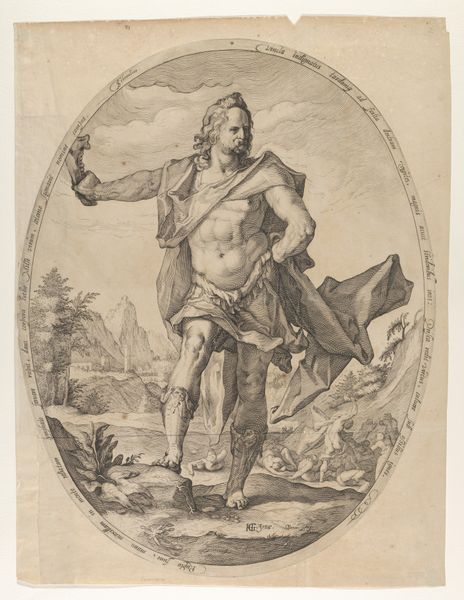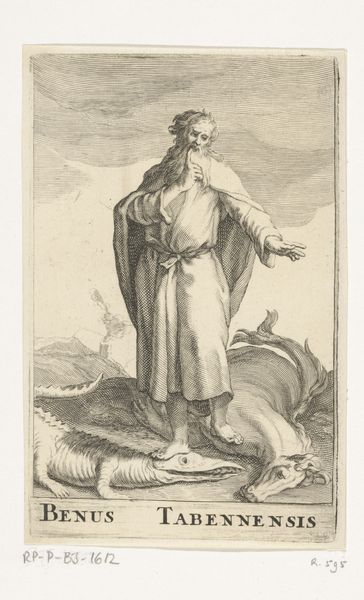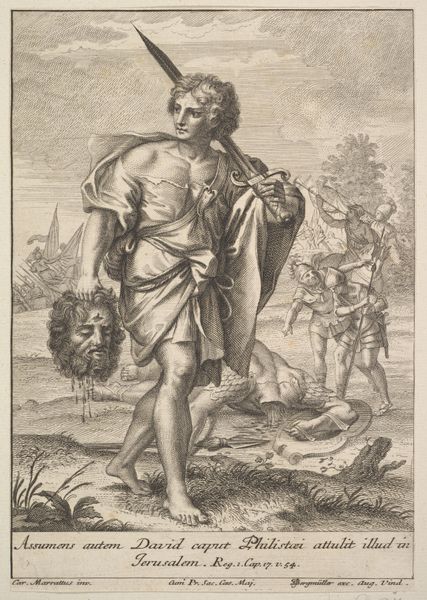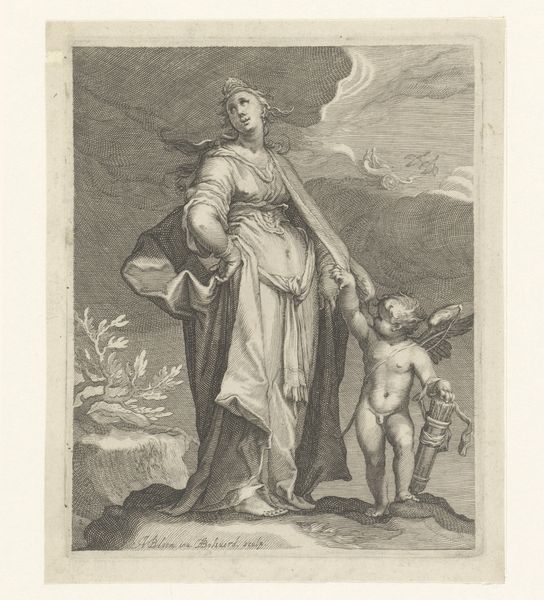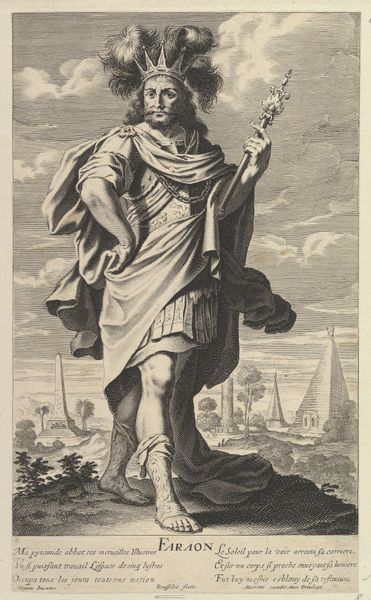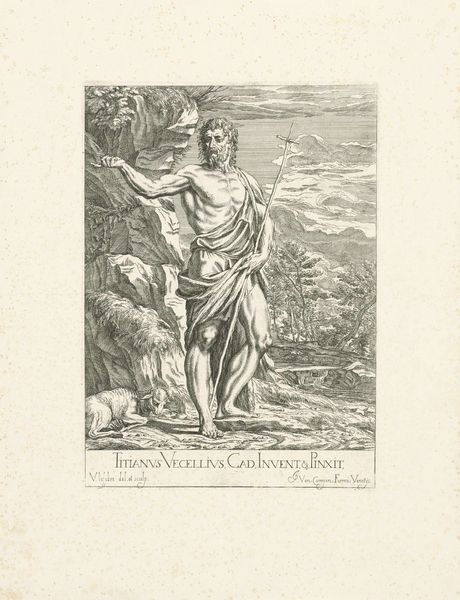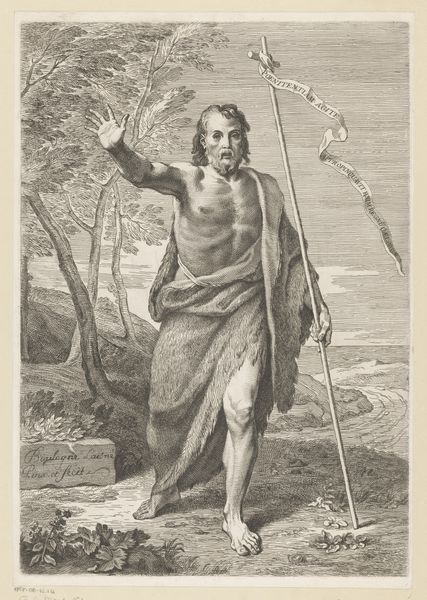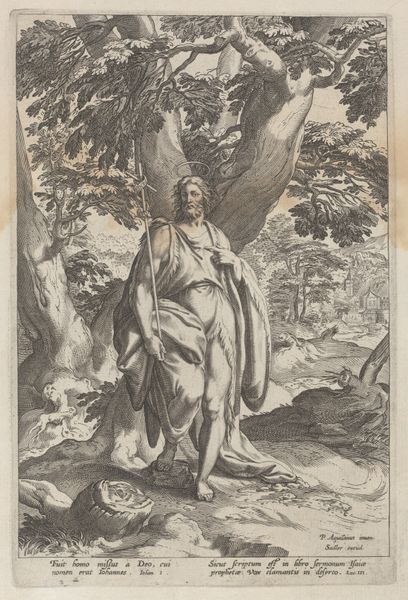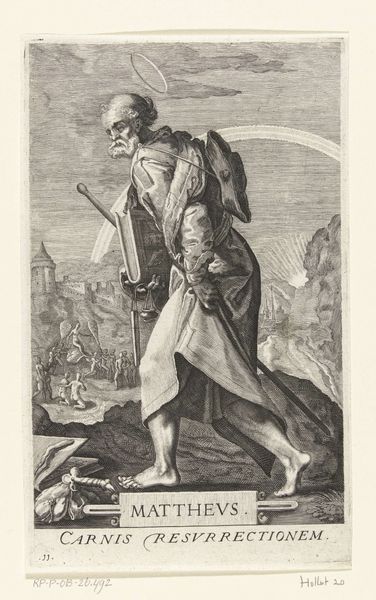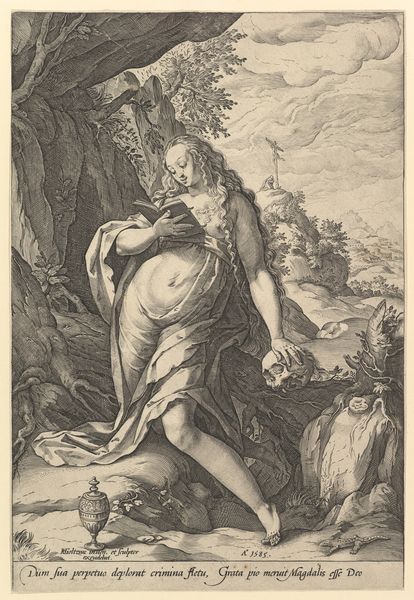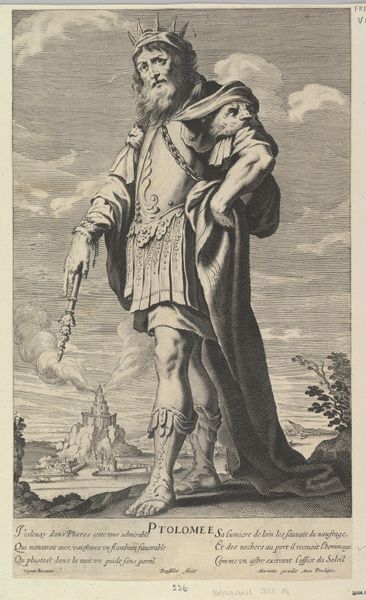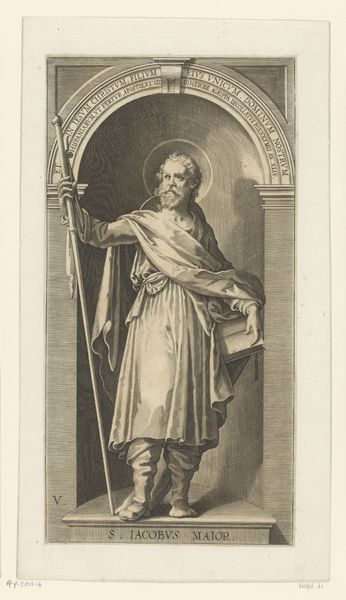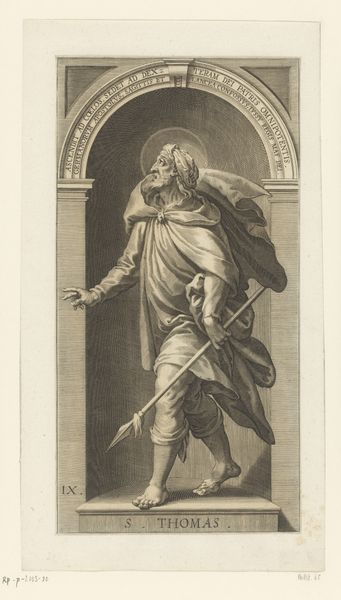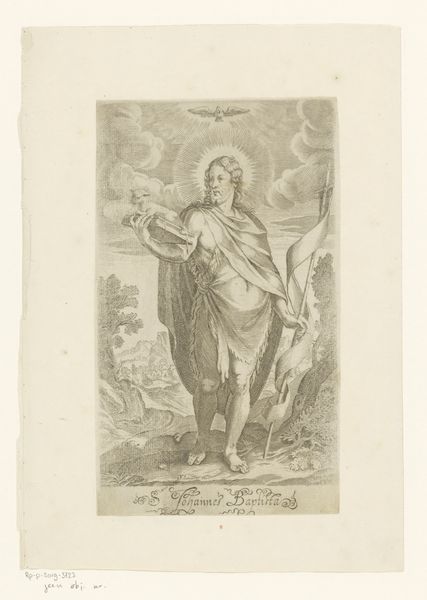
engraving
#
portrait
#
baroque
#
old engraving style
#
caricature
#
portrait drawing
#
history-painting
#
engraving
Dimensions: height 213 mm, width 141 mm
Copyright: Rijks Museum: Open Domain
This is Francesco Villamena's depiction of Saint John the Baptist in the wilderness, made with engraving techniques. Engraving demands meticulous skill and a deep understanding of materials. The artist would have used a tool called a burin to carve lines directly into a metal plate, likely copper. Ink is then applied to the plate, and the surface wiped clean, leaving ink only in the carved lines. Finally, paper is pressed against the plate, transferring the image. Look closely, and you can see how the varying widths and depths of the engraved lines create tonal contrasts, giving form to John's figure, his lamb, and the landscape. This print wasn't just about religious devotion, it was also a product of a sophisticated printmaking industry. Consider the labour involved: from mining and refining the metal, to the skilled work of the engraver, and the operation of the printing press. Paying attention to materials and making helps us appreciate the artistic skill and social context embedded in this compelling image.
Comments
No comments
Be the first to comment and join the conversation on the ultimate creative platform.
